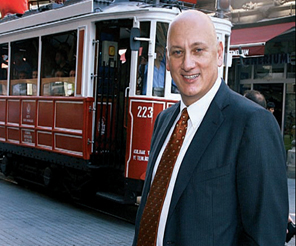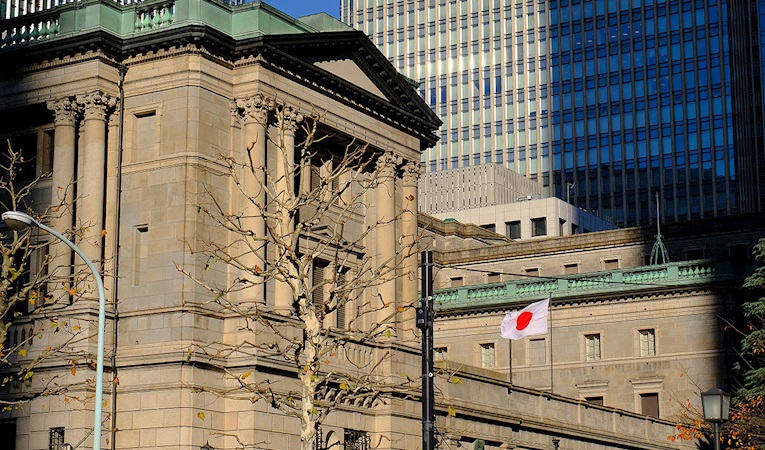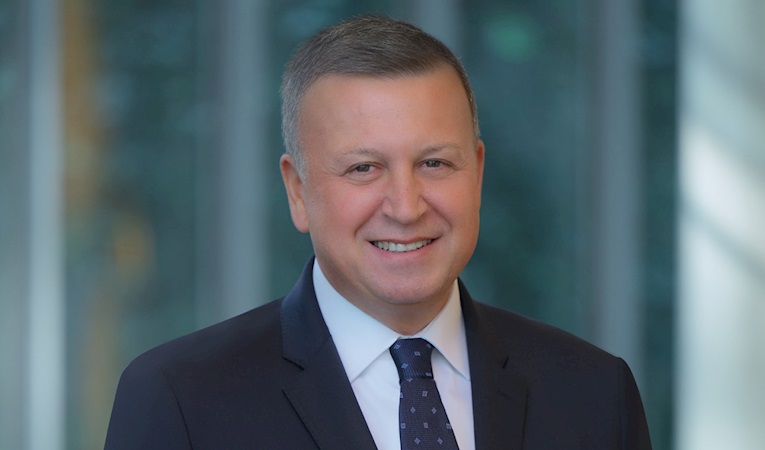
-
BIST 100
 11286,81%0,00En Düşük11250,46En Yüksek11364,52
11286,81%0,00En Düşük11250,46En Yüksek11364,52 -
DOLAR
 42,73%0,03Alış42,7279Satış42,7379En Yüksek42,7397
42,73%0,03Alış42,7279Satış42,7379En Yüksek42,7397 -
EURO
 50,32%0,27Alış50,3162Satış50,3335En Yüksek50,3353
50,32%0,27Alış50,3162Satış50,3335En Yüksek50,3353 -
EUR/USD
 1,17%0,04Alış1,1743Satış1,1744En Yüksek1,1751
1,17%0,04Alış1,1743Satış1,1744En Yüksek1,1751 -
ALTIN
 5954,79%-0,14Alış5954,09Satış5955,49En Yüksek5968,75
5954,79%-0,14Alış5954,09Satış5955,49En Yüksek5968,75
-
BIST 100
 11286,81%0,00En Düşük11250,46En Yüksek11364,52
11286,81%0,00En Düşük11250,46En Yüksek11364,52 -
DOLAR
 42,73%0,03Alış42,7279Satış42,7379En Yüksek42,7397
42,73%0,03Alış42,7279Satış42,7379En Yüksek42,7397 -
EURO
 50,32%0,27Alış50,3162Satış50,3335En Yüksek50,3353
50,32%0,27Alış50,3162Satış50,3335En Yüksek50,3353 -
EUR/USD
 1,17%0,04Alış1,1743Satış1,1744En Yüksek1,1751
1,17%0,04Alış1,1743Satış1,1744En Yüksek1,1751 -
ALTIN
 5954,79%-0,14Alış5954,09Satış5955,49En Yüksek5968,75
5954,79%-0,14Alış5954,09Satış5955,49En Yüksek5968,75
- Anasayfa
- Haberler
- Tüm Haberler
- We shall grow without taking risks
We shall grow without taking risks
Turkcell CEO Süreyya Ciliv believes that the new world that will be created by 3G is full of opportunities.
1.08.2009 00:00:000

With 62 million customers in eight countries, Turkcell is one of Turkey’s most important success stories... The company, which this year ranked sixth in the Capital 500, is impressive both because of its high turnover and because of the investments it has made in technology and human resources and its innovative culture.Turkcell is currently traded on the New York Stock Exchange and has a significant standing on the global market. In addition to being the largest operator in the region, it is ranked amongst the leading technology companies in the global market. “Particularly in mobile technologies, we are at the same level as the leaders in the world,” says Turkcell CEO Süreyya Ciliv. He notes that today operators have come from many places in the world, from Europe to India, to form partnerships and benefit from Turkcell's experience, knowledge and skills.
We spoke with Turkcell CEO Süreyya Ciliv about Turkcell’s plans for the period ahead, the future of the telecoms sector and the new mobile world which had been inaugurated by 3G.
Capital: In 2008, Turkcell’s revenue reached US$7 billion. How much are you aiming to increase your revenue this year? What are your targets for profitability in 2009?
- I can say that Turkcell will continue to grow despite the global economic crisis, its effects on Turkey and fierce competition. We foresee single figure growth this year. In the first quarter of 2009, we recorded growth of 12 percent in TL terms compared with the same period last year. We were the fastest growing of the four large technology firms in Turkey. We shall continue to increase our market and create a difference through our very strong human resources, our technology investments and our innovative culture.
Capital: How is Turkcell’s revenue currently distributed? How do you see this spread in five years’ time?
- We have 62 million customers in eight countries. Some of our foreign participations consolidate our profits rather than our revenue. For example, the firm Fintur, in which we have a 42 percent stake, is active in countries such as Kazakhstan, Georgia, Azerbaijan and Moldova. Because we have a share of less than 50 percent here we cannot consolidate this company’s figures. But we make profits here. These countries make a good contribution to our total profits.
Turkey accounts for a significant proportion of Turkcell’s revenue at around 80 percent. It looks as though Turkey will account for a little more than 80 percent of our revenue. I would estimate that in the next five years, our revenue from data and services will account for nearly 50 percent of our total revenue.
Capital: You said: “We have three billion dollars in cash. 2009 is a year of opportunity for us. We may make some acquisitions.” You failed to buy Cosmofor, the second largest GSM operator in Macedonia. Apart from Cosmofor, are there any companies or markets in which you are particularly interested? For example, are you interested in the 49 percent of the Iranian telecoms company which will be privatised?
- We were interested in companies in some countries and we bid for some of the tenders but failed to win. More accurately, we opted to withdraw after the price reached a certain level. We are looking to be careful here. We emphasize not paying too high a price for a company we acquire and keeping out of speculative competitions. We are happy with the countries in which we are active. We think that there will be significant growth in our businesses there, particularly in mobile services.
There are opportunities in which we are interested in neighbouring countries, both in North Africa and in Eastern Europe. I can say that this region is the region in which we have made growth plans.
Capital: There is intense competition in the GSM market.~
How long do you think competition can continue at this high level? How does this level of competition shape the market?
- I think that the competition in our business will continue forever. Competition is necessary for successful firms. Sometimes you can even compete with yourself or with technology. But there is very fierce competition, particularly in the mobile sector.
What is interesting is that there is no competition in fixed lines, whether in fixed internet services or in voice traffic. We hope that some competition will start in these markets and that we shall join the competition in these markets.
Capital: What are the advantages you hope to acquire in competition with Turk Telekom and the services you plan to offer in the future?
- The world is becoming a mobile world. Today there are four billion mobile users in villages and towns from Africa to China. The figure is expected to reach six billion in 2012. This mobile internet market is one of the most important markets in the world today. The internet is an important market in any case and is growing, but people are no longer content with accessing the internet for 1-2 hours a day from a desktop computer. They want to be able to access the internet when they are moving, from wherever they are and all the time. Mobile appliances provide them with this opportunity. SIM cards are being included in laptop computers. And now a device called a netbook has appeared. In the years ahead, all of the telephones will be intelligent telephones.
We spoke with Turkcell CEO Süreyya Ciliv about Turkcell’s plans for the period ahead, the future of the telecoms sector and the new mobile world which had been inaugurated by 3G.
Capital: In 2008, Turkcell’s revenue reached US$7 billion. How much are you aiming to increase your revenue this year? What are your targets for profitability in 2009?
- I can say that Turkcell will continue to grow despite the global economic crisis, its effects on Turkey and fierce competition. We foresee single figure growth this year. In the first quarter of 2009, we recorded growth of 12 percent in TL terms compared with the same period last year. We were the fastest growing of the four large technology firms in Turkey. We shall continue to increase our market and create a difference through our very strong human resources, our technology investments and our innovative culture.
Capital: How is Turkcell’s revenue currently distributed? How do you see this spread in five years’ time?
- We have 62 million customers in eight countries. Some of our foreign participations consolidate our profits rather than our revenue. For example, the firm Fintur, in which we have a 42 percent stake, is active in countries such as Kazakhstan, Georgia, Azerbaijan and Moldova. Because we have a share of less than 50 percent here we cannot consolidate this company’s figures. But we make profits here. These countries make a good contribution to our total profits.
Turkey accounts for a significant proportion of Turkcell’s revenue at around 80 percent. It looks as though Turkey will account for a little more than 80 percent of our revenue. I would estimate that in the next five years, our revenue from data and services will account for nearly 50 percent of our total revenue.
Capital: You said: “We have three billion dollars in cash. 2009 is a year of opportunity for us. We may make some acquisitions.” You failed to buy Cosmofor, the second largest GSM operator in Macedonia. Apart from Cosmofor, are there any companies or markets in which you are particularly interested? For example, are you interested in the 49 percent of the Iranian telecoms company which will be privatised?
- We were interested in companies in some countries and we bid for some of the tenders but failed to win. More accurately, we opted to withdraw after the price reached a certain level. We are looking to be careful here. We emphasize not paying too high a price for a company we acquire and keeping out of speculative competitions. We are happy with the countries in which we are active. We think that there will be significant growth in our businesses there, particularly in mobile services.
There are opportunities in which we are interested in neighbouring countries, both in North Africa and in Eastern Europe. I can say that this region is the region in which we have made growth plans.
Capital: There is intense competition in the GSM market.~
How long do you think competition can continue at this high level? How does this level of competition shape the market?
- I think that the competition in our business will continue forever. Competition is necessary for successful firms. Sometimes you can even compete with yourself or with technology. But there is very fierce competition, particularly in the mobile sector.
What is interesting is that there is no competition in fixed lines, whether in fixed internet services or in voice traffic. We hope that some competition will start in these markets and that we shall join the competition in these markets.
Capital: What are the advantages you hope to acquire in competition with Turk Telekom and the services you plan to offer in the future?
- The world is becoming a mobile world. Today there are four billion mobile users in villages and towns from Africa to China. The figure is expected to reach six billion in 2012. This mobile internet market is one of the most important markets in the world today. The internet is an important market in any case and is growing, but people are no longer content with accessing the internet for 1-2 hours a day from a desktop computer. They want to be able to access the internet when they are moving, from wherever they are and all the time. Mobile appliances provide them with this opportunity. SIM cards are being included in laptop computers. And now a device called a netbook has appeared. In the years ahead, all of the telephones will be intelligent telephones.
Türkiye ve dünya ekonomisine yön veren gelişmeleri yorulmadan takip edebilmek için her yeni güne haber bültenimiz “Sabah Kahvesi” ile başlamak ister misiniz?






